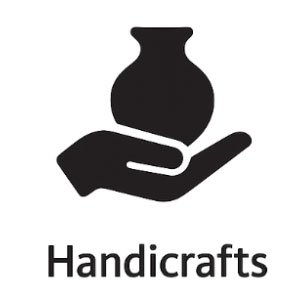

Kerala Handicrafts
Kerala handicrafts are renowned for their intricate designs, traditional techniques, and cultural significance. These handicrafts reflect the rich heritage and artistic skills passed down through generations. From wood carvings to coir products, Kerala handicrafts showcase the creativity and craftsmanship of local artisans, making them a vital part of the state’s cultural identity.
Traditional Wood Carvings
Kerala’s traditional wood carvings are a testament to the state’s rich artistic heritage. These carvings often depict mythological figures, deities, and scenes from epics, meticulously crafted from teak, rosewood, and sandalwood.
Key Highlights:
- Temple Architecture: Exquisite wood carvings adorn many temples, reflecting religious and cultural stories.
- Decorative Items: Includes intricately carved furniture, jewelry boxes, and statues.
- Master Craftsmanship: Artisans use traditional tools and techniques passed down through generations.




Coir Products
Kerala is one of the largest producers of coir, derived from coconut husks. Coir products are eco-friendly and versatile, ranging from mats and rugs to bags and baskets.
Key Highlights:
- Durability: Coir products are known for their strength and longevity.
- Eco-Friendly: Made from natural fibers, they are biodegradable and sustainable.
- Variety: Includes floor mats, doormats, wall hangings, and decorative items.




Brass and Bell Metal Works
Kerala’s brass and bell metal crafts are celebrated for their fine artistry. These metals are molded into various forms, including lamps, utensils, and traditional artifacts.
Key Highlights:
- Traditional Lamps: Nilavilakku and Aranmula Kannadi are iconic brass items.
- Utility Items: Brass utensils and cookware are both functional and decorative.
- Artistic Details: Intricate designs and embellishments showcase the artisans’ skills.




Handloom Textiles
Kerala is famous for its handloom textiles, especially the Kasavu sarees, which feature gold borders and are often worn during festivals and ceremonies.
Key Highlights:
- Kasavu Sarees: Known for their elegance and simplicity, often in white or off-white with gold borders.
- Traditional Weaving: Handloom weaving techniques ensure high-quality and unique designs.
- Variety: Includes mundus, settu mundus, and dhotis, suitable for various occasions.




Nettipattam and Elephant Accessories
Nettipattam, the ornamental caparison used to decorate elephants during festivals, is a unique aspect of Kerala handicrafts. These accessories are made with intricate beadwork and gold-plated materials.
Key Highlights:
- Festive Use: Widely used in temple festivals and cultural events.
- Craftsmanship: Made by skilled artisans who spend weeks creating each piece.
- Cultural Symbolism: Represents prosperity and grandeur in Kerala’s traditions.




Bamboo and Cane Products
Bamboo and cane crafts are integral to Kerala handicrafts, offering a range of products from baskets to furniture.




Key Highlights
- Versatility: Products include baskets, mats, furniture, and decorative items.
- Sustainability: Bamboo and cane are renewable resources, promoting eco-friendly crafts.
- Aesthetic Appeal: Natural textures and finishes add a rustic charm to these products.
Aranmula Kannadi
The Aranmula Kannadi is a unique metal mirror made in Aranmula, known for its reflective properties and cultural significance




Key Highlights
- Unique Craft: Made from a secret alloy formula, different from ordinary glass mirrors.
- Cultural Importance: Often used in rituals and as a symbol of prosperity.
- Exquisite Design: Each mirror is handcrafted and polished to perfection.
Conclusion
Kerala handicrafts offer a glimpse into the state’s rich cultural heritage and the skilled craftsmanship of its artisans. These crafts, ranging from wood carvings and coir products to handloom textiles and metal works, not only serve functional purposes but also add aesthetic and cultural value. Exploring Kerala handicrafts allows you to appreciate the diverse and intricate artistry that defines this beautiful state.







